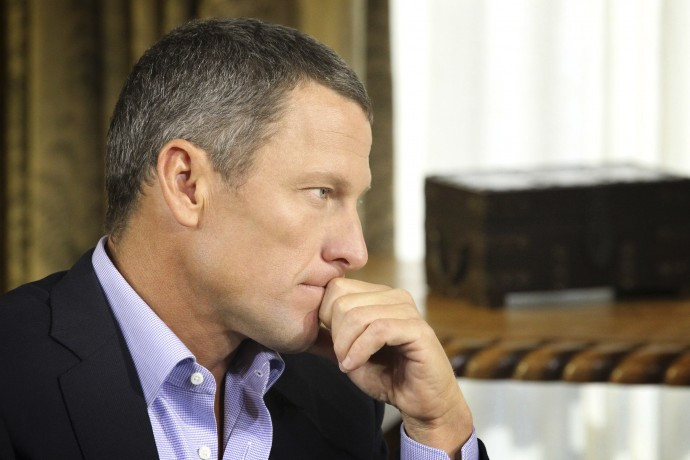Lance Armstrong: Can Sport Ever Stop the Drug Cheats?

Lance Armstrong's TV confession that he owed his seven consecutive Tour de France victories to a cocktail of performance-enhancing drugs has once more raised the question of how to ensure integrity in high-profile sports.
As the promise of fame and wealth has opened up to our sporting heroes, so the doping techniques available have become increasingly sophisticated and difficult to detect.
During the London 2012 Olympic Games, more drugs tests were carried out than at any previous Games, with a team of 150 scientists analysing more than 6,250 samples for prohibited performance-enhancing substances.
This week, former Belgian tennis player Christophe Rochus expressed fears that the increased physical demands of his sport would inevitably tempt some stars to experiment with stamina-enhancing chemicals.
Athletes in several sports are subjected to prison-like surveillance during competitions, and are subjected to a range of random tests.
But as the means of combatting doping become more sophisticated, so do the methods of securing an unfair advantage.
Recently American swimming coach John Leonard said he could imagine genetic enhancement technology soon being used by athletes to improve performance, transferring favourable genes into their cells.
Many claim the solution to doping may be much simpler, with Armstrong's lawyer Tim Herman arguing that elite cyclists should be subjected to lie detector tests on whether they have doped.
The Dutch Cycling Authority recently announced they would longer hire cyclists or team members who had been banned for six months or more for doping offences.
The financial and legal penalties for those caught doping can be enormous.
Armstrong could be forced to pay back up to $12 million in awards and bonuses and will lose much more in future endorsements. Britain's Sunday Times newspaper is already suing Armstrong for repayment of $1.5m in costs and settlement of a libel case; the paper had printed claims that Armstrong used drugs.
Armstrong could also face more serious legal redress: American sprinter Marion Jones, who won five medals in the 2000 Olympics, was jailed for six months for perjury after lying on oath about doping; Armstrong's confession contradicts a statement he made under oath in a 2006 deposition, when he denied using performance-enhancing drugs.
Some argue that the war on doping in sport is as irrational and unwinnable as the wider war on drugs, and that the controlled and monitored use of substances can improve the speed of athletes and enhance sport as a spectacle, and help ensure the safety of athletes.
Whichever strategy is chosen, the Icarus-like fall of Armstrong serves as reminder of the consequences of using whatever means possible to ensure victory.
© Copyright IBTimes 2025. All rights reserved.





















